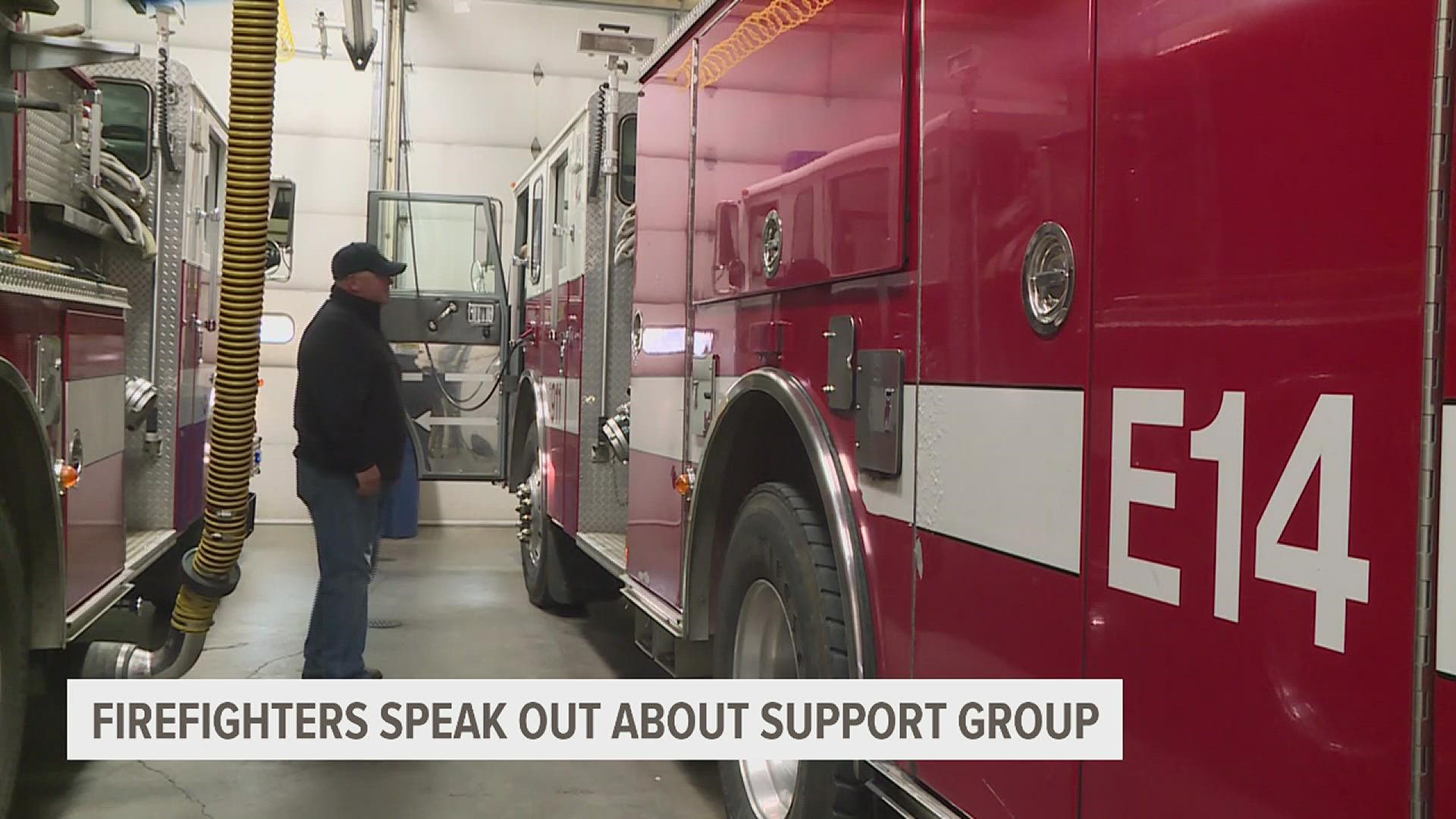MOLINE, Ill. — In January 2020, several Quad City first responders helped to create a mental health support group for other first responders. Now, almost three years later, members of that support group are trying to broaden their message to a larger audience about making it okay to not be okay.
The group is called Mutual Aid Box Alarm System 43 Peer Support Team and it's just one support group of an Illinois statewide, mutual aid response system for fire, EMS and specialized incident operation teams.
"We have police, fire dispatchers, we have emergency management personnel, we have retirees and we do have some spiritual guidance with a couple of our members," team organizer Lt. Jamie Hudson said. "We're not counselors, we're not therapists. We are just people who have experienced trauma ourselves and offer peer-on-peer assistance if the situation was to arise."
From Nov. 15-17, they will be holding a three-day conference called "Post Traumatic Purpose" at the Vibrant Arena At The Mark in Downtown Moline for all first responders and their families to discuss the importance of talking about mental health struggles.
"My hope is that the people that attend are people that want to attend and want to get a better understanding of their mental health," Hudson said.
Peer Team 43 also invited Travis Howze, a former marine, firefighter and police officer who was ordered to help recover the bodies of nine fallen firefighters in the deadly 2007 furniture store fire in Charleston, Sc., dubbed "The Charleston 9", a task that left Howze feeling guilty.
And though he isn't a motivational speaker like Howze, Hudson is a firefighter with the Moline Fire Department. And he says his own personal troubles in 2015 led him to the lowest point of his life.
"So after I started my career, I was exposed to some pretty significant events, along with working multiple jobs and having a pretty, pretty difficult home life- not being able to process things and deal with things properly- caused me to go through divorce," Hudson said. He later remarried and had children, but things didn't get better for him.
"One day in January 2015, I had a pretty dramatic event," Hudson said. "And the next day, I realized that there was no way that I could continue without getting help."
Hudson described himself as "a toxic person," "extremely angry" and "reclusive" before he got professional mental help.
"I almost lost everything. I almost lost my marriage and [meant] that I was going to be going through my second divorce... that would have completely uprooted my entire life."
And as a result, Hudson said he became a changed man.
"That was the benefit of therapy," Hudson explained. "I wanted to get better and I was fortunate enough to get that help. That was the point where I had to get out. "
But Hudson doesn't want to highlight just his problems. He's now driven to try and change the status quo of first responders or any person with a stressful job, keeping everything in instead of letting it out in therapy or to a close friend.
"Nobody should ever feel like they're alone or that nobody understands," said Hudson. My story is not unique. You can ask any first responder and their story is gonna be pretty similar. But how we deal with it and how we move forward is what makes us better."
Watch more news, weather and sports on News 8's YouTube channel

